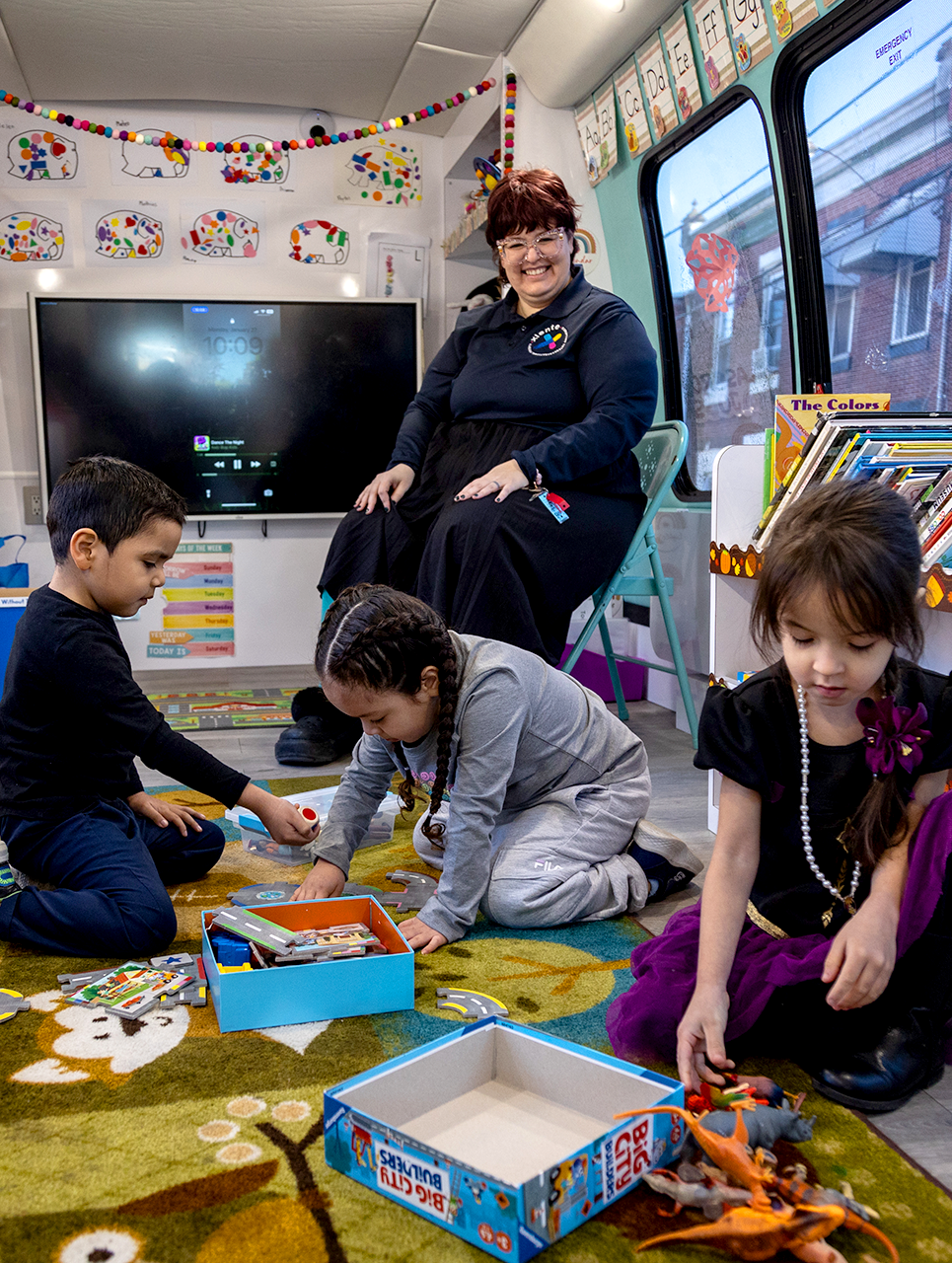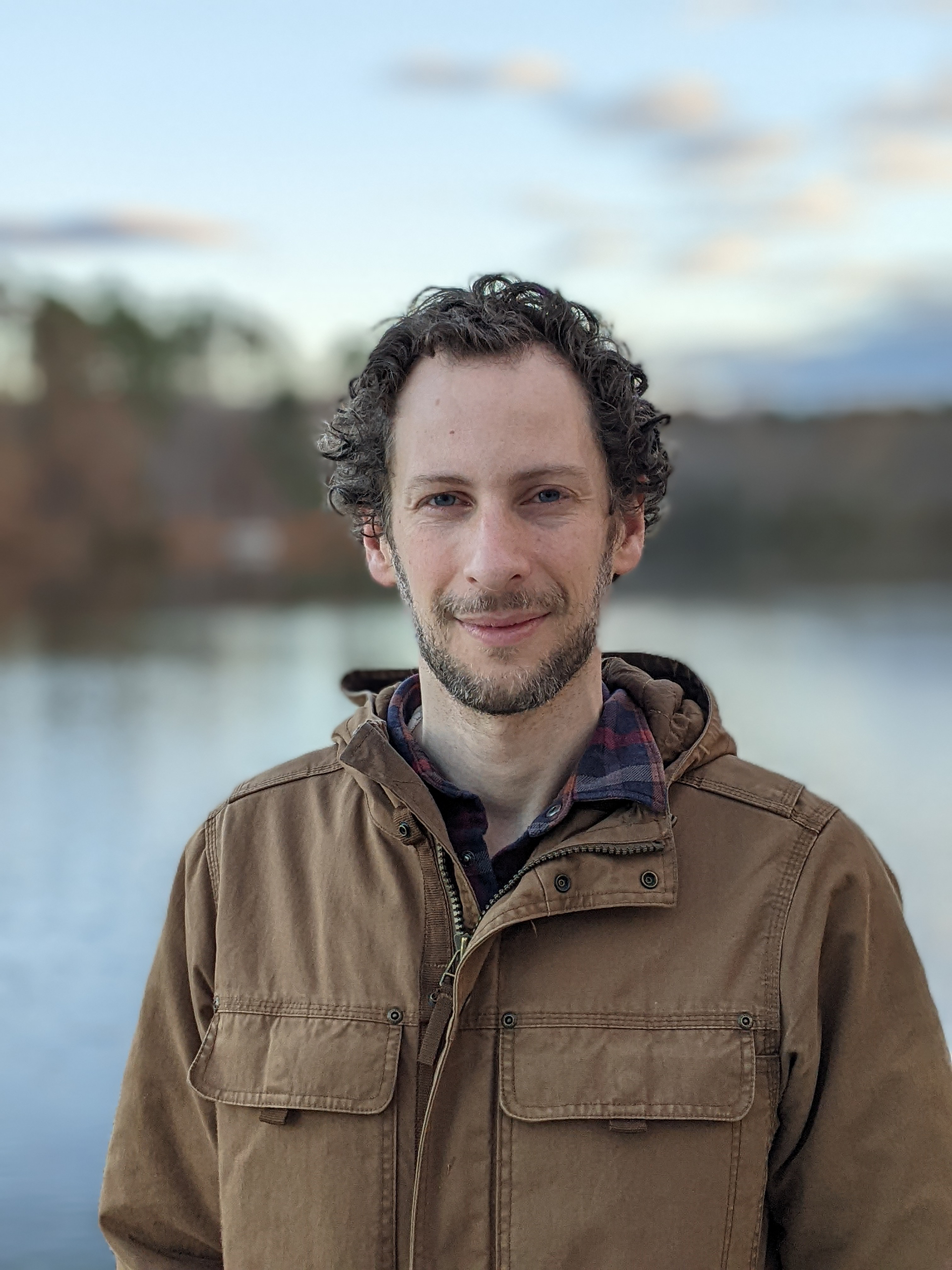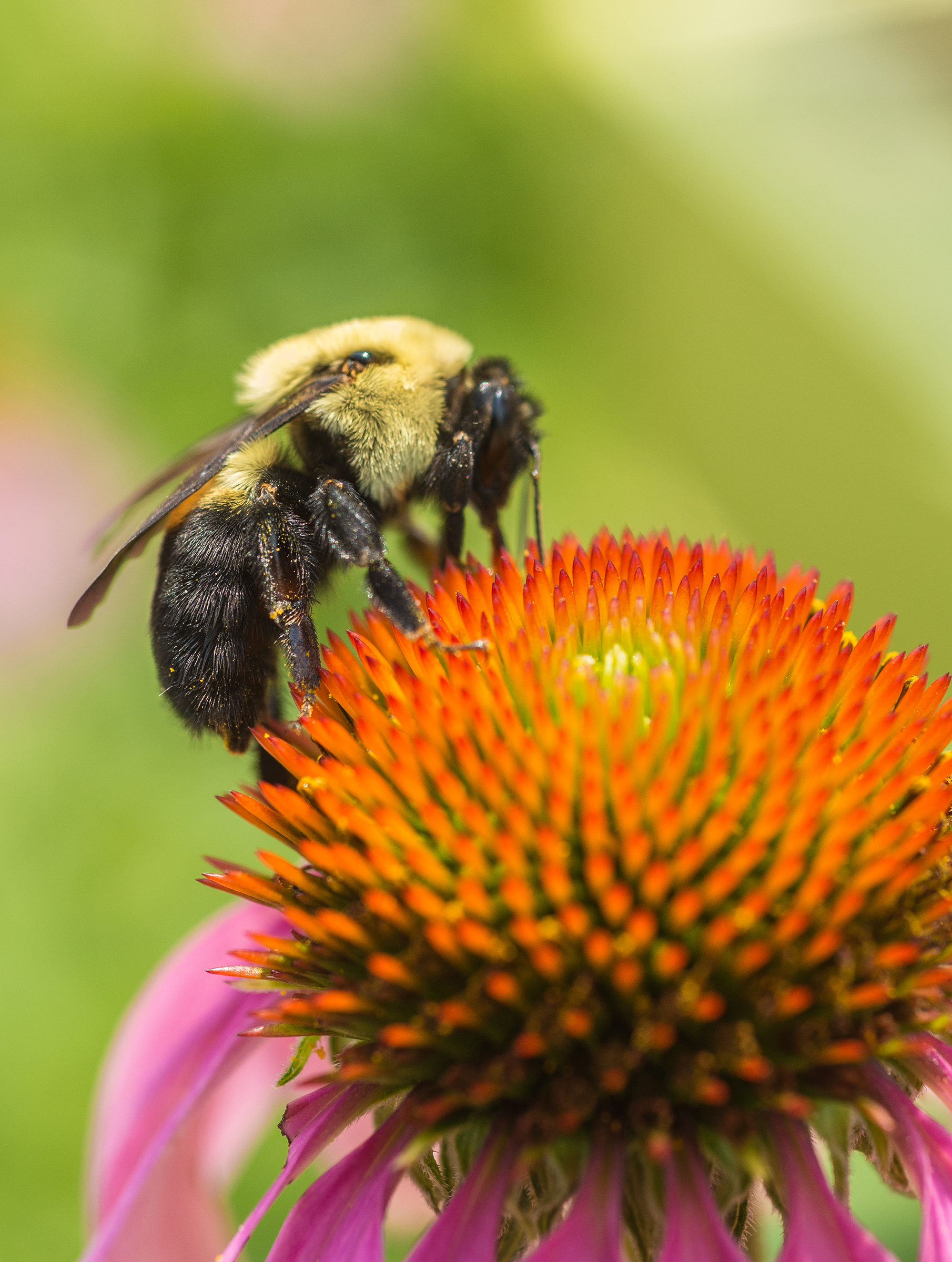A half dozen three- and fouryear- olds wave “adios!” to their moms and younger siblings, then pile into the little bus, “el Busesito,” parked on a street corner in Frankford. Inside the 24-foot van, repurposed as a mobile preschool classroom, the Spanish-speaking children grab puzzles, blocks, stuffed animals, papers and crayons and settle on a rug patterned with trees and animals in vibrant colors.
Begun in 2023 by Xiente, a North Philly grassroots nonprofit, the Busesito is an outgrowth of the bilingual preschool programs at Xiente’s Escuelita (little school), formerly the Children’s Center. The school’s curriculum has earned four stars — the highest rating — from the Pennsylvania Department of Education, but it serves only certain zip codes. The Busesito, modeled after a program for lower-income Spanish-speaking families in Colorado, allows Xiente to cast a wider net of early learning.
“The Busesito gets children ready for kindergarten,” says Sarah Clemency, the lead teacher, program coordinator and bus driver, explaining that there’s often a gap between what children from low-income areas know and what’s expected of them in kindergarten. “Many children are behind before they even start school,” Clemency says.
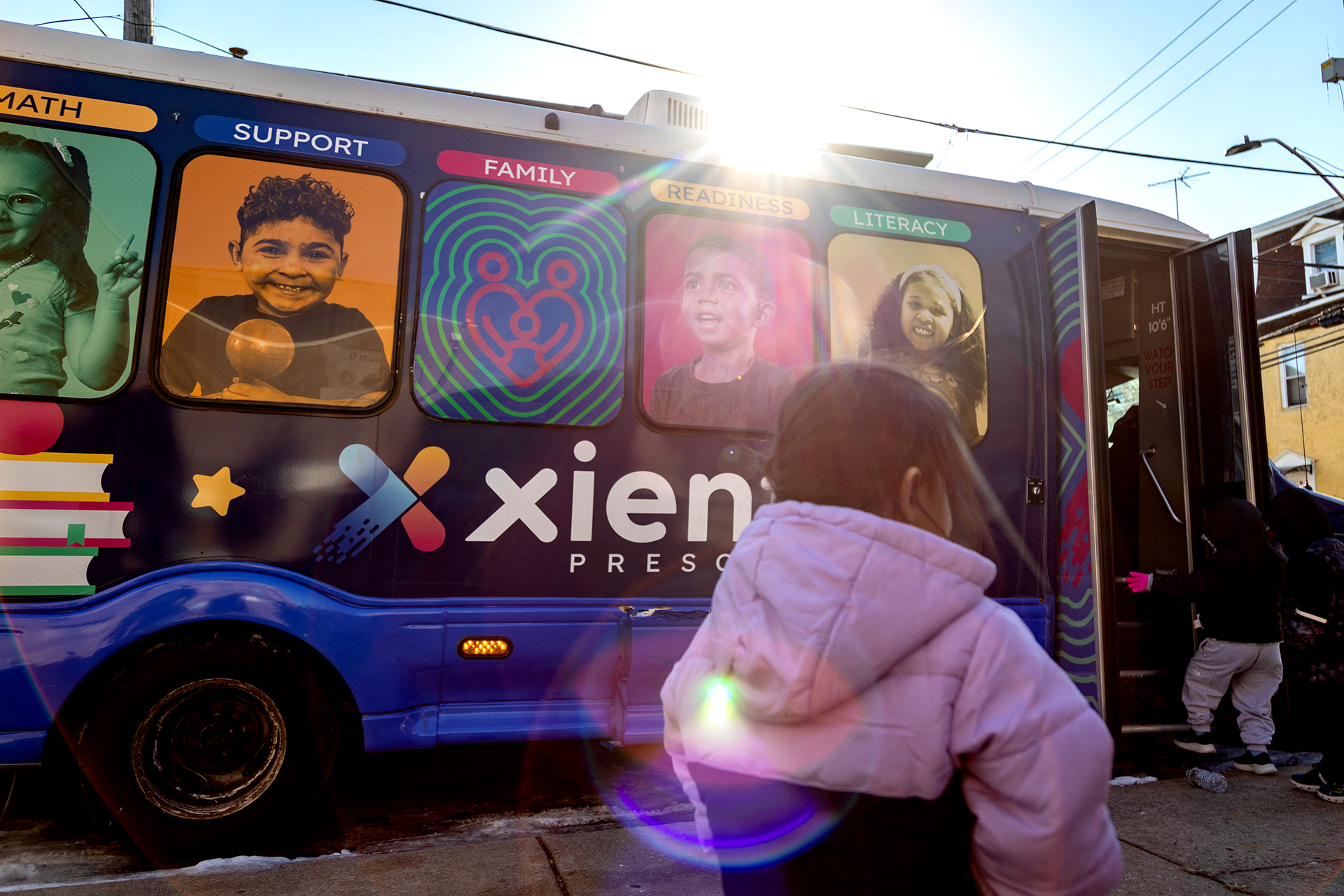
A study by the American Academy of Pediatrics confirms Clemency’s view. It followed some 46,000 children born between 2000 and 2009 to age 7 and found that children born in poverty were less likely to be ready for kindergarten than those from wealthier households. Likewise, researcher Cynthia E. Lamy, a developmental and educational psychologist with the National Institute for Early Education Research at Rutgers University, has concluded that good preschool programs can not only offset the effects of poverty but increase the likelihood of children finishing high school and earning higher salaries.
The Busesito, coupled with social services to participants’ caregivers, holds promise for lifting families out of poverty.
At the Busesito, the day begins with free play that segues into helping children recognize the sounds of letters in the alphabet. During a lesson on the letter “o,” children point to it on the alphabet chart then draw it on the smartboard at the back of the Busesito. Clemency shows a picture of an owl and then an otter, with the “o” bold-faced in each case, and follows up with a short video about an octopus. Narrated by a marine biologist, it folds science into the lesson. A craft activity involves making an octopus out of stiff paper with pipe cleaners as tentacles.
Besides pre-reading skills, the curriculum covers numbers, shapes, sizes and colors.
Children attend the Busesito twice a week for 2.5 hours for six months. Clemency and assistant teacher Ashley Alicea give two sessions a day, Monday through Thursday. The program has served 25 young people since it began.
When a cohort starts the program, Clemency and Alicea present material in Spanish. Over time, they use more English, since that’s the language used in school. Occasionally English-speaking kids attend the Busesito, but, given young children’s linguistic flexibility, instruction and play in Spanish present no problem.
Children take the Bracken School Readiness Assessment at the beginning and end of the program to measure their progress. For example, kids in the spring 2024 cohort showed an overall improvement of 33% in numbers and counting, Clemency says.
The Busesito is free for families, friends and neighbors (FFNs) caring for children from three to five years old. That includes grandparents, aunties and neighborhood babysitters.
My child comes to have fun, and to learn and to be sociable with other children.”
— Priscilla Zhinin, Parent
Parents seem pleased with their children’s progress.
“My child comes to have fun, and to learn and to be sociable with other children,” says Priscilla Zhinin, mother of three-year-old Romaina.
“My son is very intelligent,” says Maria Padilla, mother of three-year-old Mateo. “He is learning a lot. He needs to spend time away from me so that he won’t be upset when he starts school.”
Besides early academics, the Busesito fosters social-emotional learning, Clemency says. There’s really nowhere to hide, but at the beginning of one 2023 cohort, a little girl would crouch down and make herself small when she was unhappy, according to Clemency. “At the end of six months, she could explain why she was upset instead of trying to hide,” Clemency says. Clemency and Alicea may also notice emotional vulnerabilities in children and suggest early intervention to parents, giving them appropriate referrals.
Clemency encourages FFNs to see themselves as teachers and to share their knowledge — and vocabulary — about everyday activities with the children. Clemency sends out a weekly newsletter to caregivers with tips on how to introduce topics to children or review material covered during the week. In addition, the program provides books and school supplies for caregivers of Busesito students. When the course ends, FFNs get guidance about other pre-K or kindergarten programs, depending on the child’s age.
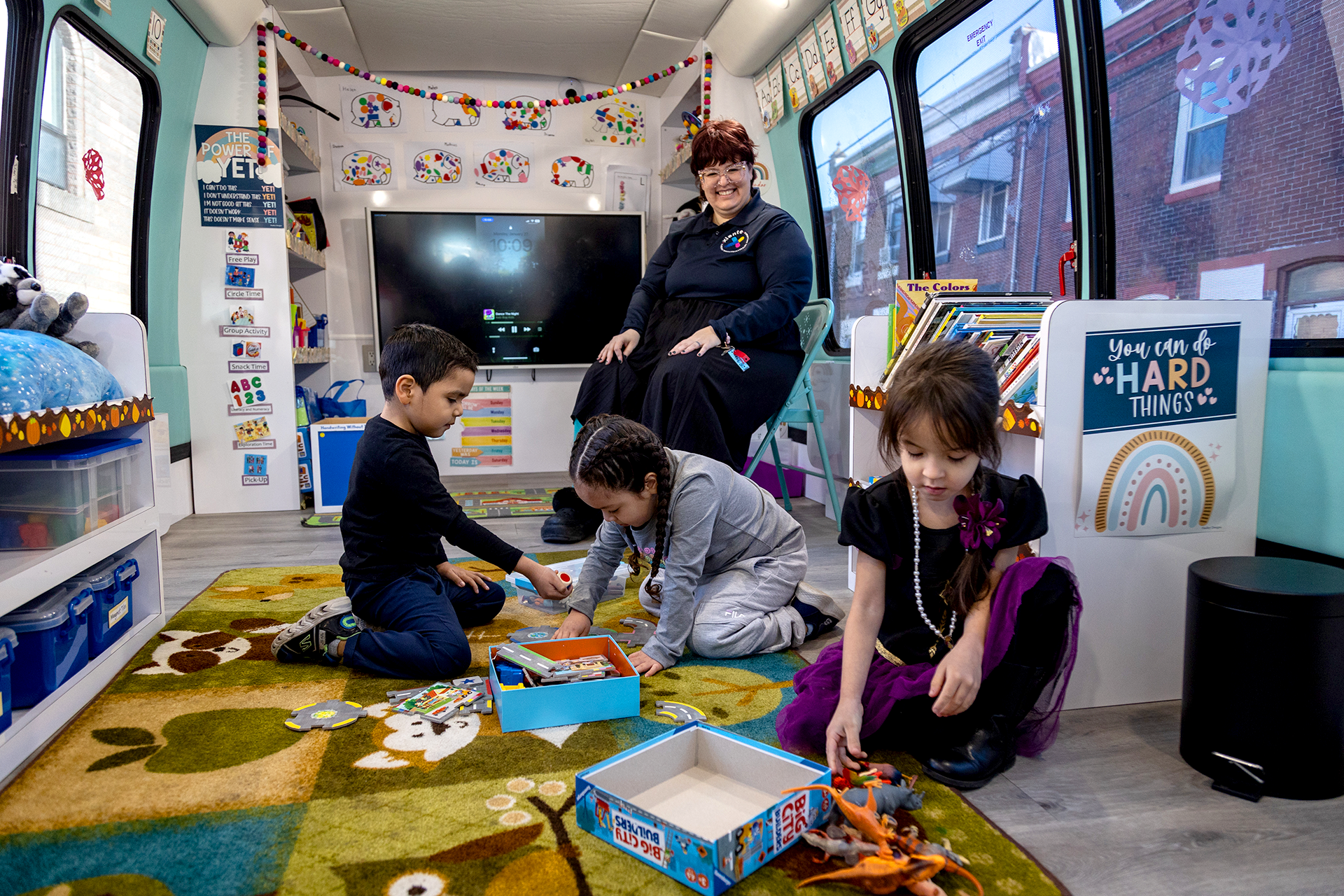
The Busesito has no bathrooms, so it partners with host sites that allow children access to their facilities. Equally important, parents of children attending the Busesito may receive services through the centers. They can take economic mobility classes, consult an economic mobility counselor and get healthcare referrals, housing assistance and job placement.
“Our workforce development emphasizes digital literacy and mastery of English,” says Windy Rodriguez, program director of Catholic Social Services at the Cenacle at Padre Pio. The Cenacle also has parenting classes, a food pantry, children’s clothing and other supports for families. In addition, the Cenacle holds events, such as baby showers, to create a network of parents.
The intergenerational approach can both boost parents’ earnings and bolster children’s academic gains, according to a 2011 article in Developmental Psychology, a journal published by the American Psychological Association. It suggests that “a $1,000 increase in annual income increases young children’s achievement by 5%–6% of a standard deviation.”
Children who complete the Busesito course and parents who take part in the economic mobility classes receive diplomas.
“The way [the children] are proud of themselves and get excited to learn is a joy to see,” says Clemency. “I also love that the Busesito is a two-generational program,” she adds, noting that it can travel anywhere in Philadelphia.
Clemency has faced hurdles, however. “Finding places to partner with us has been a challenge,” she says. Xiente and the Busesito would like to collaborate with churches, museums, libraries and other nonprofits.
The William Penn Foundation and Vanguard have funded the Busesito, but the program welcomes both additional institutional funders and individual donations.
To learn more about the Busesito or to donate, call 215-426-8734 or visit xiente.org.

